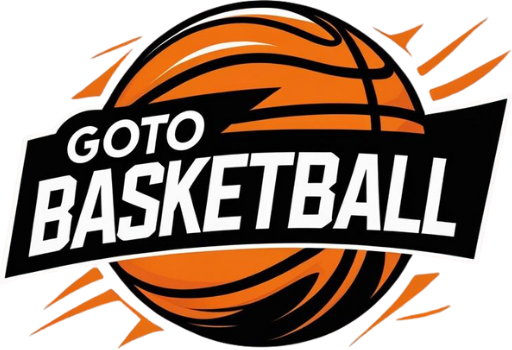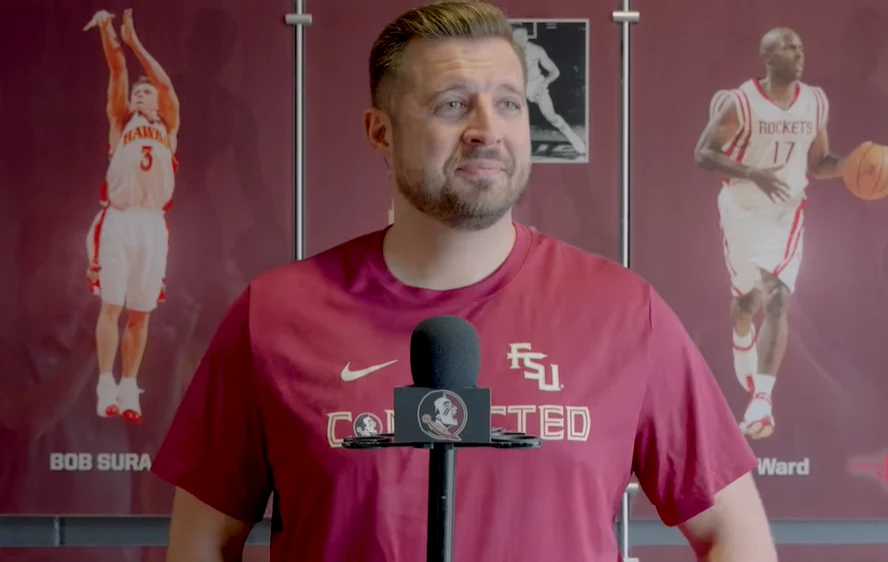In the high-stakes, transient world of college athletics, where coaching carousels spin with dizzying speed and hires are often made from a pool of national mercenaries, Florida State University is making a profoundly human bet. It’s a wager not on a flashy resume from a blue-blood program, but on the intangible power of heart, history, and homecoming. The program is turning to its own, officially naming Seminole legends Luke Loucks and Derwin Kitchen as assistant coaches for the men’s basketball team 1. This isn’t just a staffing update; it’s a strategic embrace of legacy, a decision that resonates with fans on an emotional frequency that no outside hire ever could. It’s a belief that the men who helped build the foundation of modern FSU basketball are the very ones who can help restore its pinnacle.
For a fanbase still grappling with the abrupt departure of a legendary coach and the painful, public exclusion from the 2023 College Football Playoff, this move feels different. It feels like a healing balm. In bringing Loucks and Kitchen back to Tallahassee, head coach Jamie Dixon isn’t just filling out his roster; he’s weaving a continuous thread from the program’s most triumphant past directly into its hopeful future, signaling a commitment to an identity that feels uniquely and authentically Florida State.
From Floor Generals to Bench Tacticians: Introducing the New Guard
To understand the weight of these hires, one must first understand the men themselves and the era they represent.
Luke Loucks is, in many ways, the natural successor in a coaching lineage. The 6’5” point guard from Clearwater was a four-year contributor from 2008 to 2012, a period that marked the absolute zenith of Seminole basketball under Coach Leonard Hamilton. Loucks wasn’t always the leading scorer, but he was often the steady hand and the high-IQ playmaker who facilitated the offense. His career pinnacle came in the 2012 ACC Tournament, where he delivered a legendary performance. In the Championship game against North Carolina, Loucks scored 10 points and dished out a career-high 13 assists, expertly dissecting the Tar Heels’ defense to lead FSU to its first-ever ACC Tournament title 2. It was a masterclass in leadership and poise under pressure—skills that translate directly to coaching.
Since his playing days ended, Loucks has been meticulously crafting his coaching resume. He spent several years in the NBA with the Golden State Warriors and Cleveland Cavaliers in player development and scouting roles, learning from the minds behind multiple championships 3. Most recently, he served as the head coach of the Florida State University School boys’ basketball team in Tallahassee, staying connected to the community and cutting his teeth as the lead decision-maker. His journey is one of deliberate, calculated growth from player to developer to leader.
Derwin Kitchen’s path back to Tallahassee is a powerful narrative of resilience and redemption. A Jacksonville native, Kitchen’s career was a testament to steady, all-around excellence. From 2008 to 2011, he was the ultimate glue guy—a 6’4” guard who could score, rebound, defend, and facilitate. He was a critical component of those transformative Hamilton teams, known for his toughness and basketball savvy. His senior year, he averaged 9.9 points, 5.5 rebounds, and 3.0 assists, stuffing the stat sheet and doing all the little things that win games 4.
Unlike Loucks’ direct path into coaching, Kitchen’s post-college journey took him on a professional basketball odyssey across Europe and South America. This experience, playing for different coaches in diverse cultures and styles, provides him with a vast and unique tactical repository to draw from. He returns to FSU not just as a beloved alumnus, but as a seasoned basketball lifer with a global perspective on the game.
The Historical Context: The Leonard Hamilton Renaissance
You cannot divorce from Loucks and Kitchen, the age at which they were working. As they were the foundation blocks of the team, they changed forever the course of Florida State basketball. In the years preceding the coming of Coach Hamilton in 2002, FSU was a football school with a haphazardly competitive basketball program. The blue bloods, Duke, North Carolina, and Wake Forest, dominated the ACC.
Hamilton based his program on the unique identity: unstopping, physical defense, and distance, which became the so-called No-Fly Zone. It is, however, the attraction of such players as Loucks and Kitchen that took the program out of tough out and into legitimate contention. The masterpiece was the 2011-2012 season that ended with that historic ACC Championship. It was not merely that they were victorious, but against whom. FSU that season beat North Carolina (twice, including in the ACC final) and Duke. They ended the season with a 25-10 record and by making it to the Round of 32 of the NCAA Tournament 5.
This is their legacy that Loucks and Kitchen carry. They were not mere players; they were the pioneers who were on the frontline at the most fought battles that made FSU recognized and respected in the national scene. They understand what it takes to be the top in this conference, this school, because they have achieved it.
The Strategy: The Immense Power and Peril of Hiring Alumni
Hiring program legends is a strategy fraught with both immense potential and undeniable risk—the “Prodigal Son” model in full effect.
The Power:
- Instant Credibility and Connection: A recruit listening to Luke Loucks talk about winning an ACC title in a Florida State uniform isn’t hearing a sales pitch; they’re hearing a lived experience. This authenticity is priceless in recruiting. These hires signal to current players that the coaches in the room have a deep, enduring love for the program that goes beyond a paycheck.
- Cultural Continuity: In the wake of Hamilton’s retirement, there was a legitimate fear that the program’s hard-nosed identity could be lost. Loucks and Kitchen are that identity. They can be the standard-bearers for the “No Fly Zone” mentality, ensuring the core values that brought success remain intact even as the Xs and Os evolve under Dixon.
- Fan Engagement: This is a home run with the fanbase. It creates immediate excitement and buy-in, selling nostalgia and hope in equal measure. After a period of transition, it gives fans familiar heroes to rally behind.
The Peril:
- The “Good Ol’ Boy” Network Concern: The biggest criticism of hiring alumni is the potential to become insular, prioritizing past glory over present qualifications. The question must be asked: Are they the best available coaches, or just the most beloved?
- Lack of Experience: While both have strong backgrounds, neither has been a full-time assistant at the high-major D1 level. The ACC is a brutal coaching gauntlet. The learning curve will be steep, and their coaching acumen will be tested immediately.
- Living in the Past: There’s a danger of trying to replicate 2012’s formula exactly. The game has evolved dramatically in the last decade, with the transfer portal and NIL changing the entire landscape. They must be forward-thinking innovators, not just custodians of nostalgia.
Jamie Dixon, a veteran coach himself, is undoubtedly aware of these risks. His decision suggests he believes their intimate knowledge of the program’s culture and their demonstrated basketball IQ outweigh the lack of traditional assistant coaching experience.
The Modern Landscape: Recruiting in the NIL and Portal Era
The game that is being entered into by Loucks and Kitchen is highly different compared to the game they were playing. The success will depend on how they can work through the portal of transfer and the Name, Image, and Likeness (NIL) deals.
In this case, their alumni status may prove to be an upper hand. When selling the program to a transfer or a high school recruit, they will be able to talk with confidence about the whole student-athlete experience the academic support, the life in Tallahassee, and the enthusiasm of the fanbase, all of which is said with a feeling of true warmth and faith. They are not reading the booster packet talking points; they are the talking points.
Moreover, their strong connection to the FSU community would prove helpful in helping to marshal booster backing to the NIL collective, The Battle’s End. Who could better describe the vision and the necessity of the financial support than two men who gave their blood, sweat, and tears to the program and were now sent back to guide it? 6.
A New Chapter for a Program in Transition
The hiring of Luke Loucks and Derwin Kitchen is more than a feel-good story. It is a deliberate and symbolic pivot by Jamie Dixon and the Florida State administration. It is a declaration that the future of Florida State basketball is deeply connected to the proudest chapters of its past.
They are not being hired to be yes-men or simply to wave to the crowd. They are being hired to coach, to develop, to recruit, and to help Dixon build a winner. They carry the expectations of a fanbase that remembers what they achieved as players and now expects them to help deliver similar glory as coaches.




